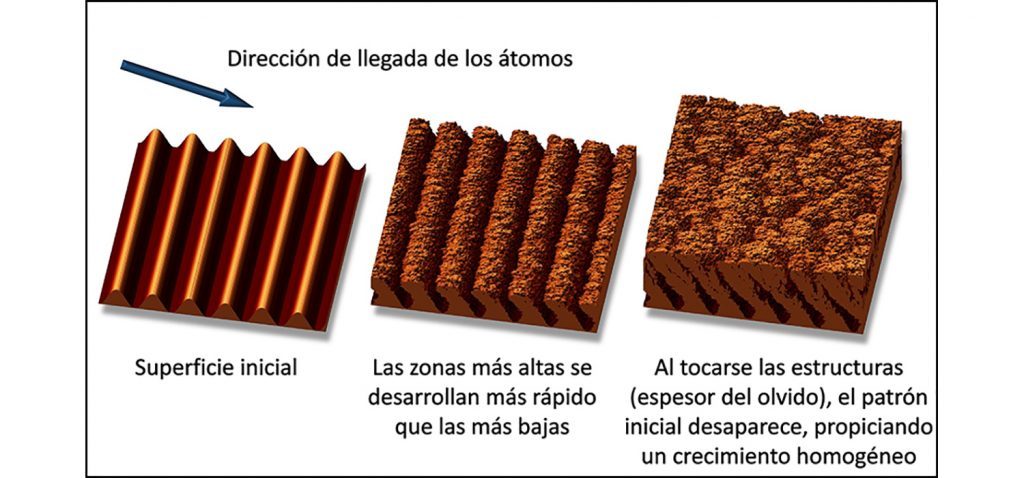IMEYMAT researchers participate in the description of a new atomic aggregation mechanism 22 February 2019
Researchers from the universities of Cadiz and Seville, in collaboration with researchers from the Complutense University of Madrid and the Institutes of Materials Science of Seville (US-CSIC) and Madrid (CSIC), have described an atomic aggregation mechanism based on the aphorism: “the rich get richer and the poor get poorer”. Specifically, they have detected this behaviour in the process by which atoms bind to a rough surface.
The authors of the study, including members of the Materials Science and Engineering research team at the Institute for Research in Electron Microscopy and Materials (IMEYMAT) of the University of Cadiz, have discovered that atoms tend to be incorporated into the higher parts of the surface, increasing their height. On the contrary, they avoid the deeper parts of the roughness, which are therefore deeper in comparison with the new height of the higher sections.
You can read the full article in the source.


